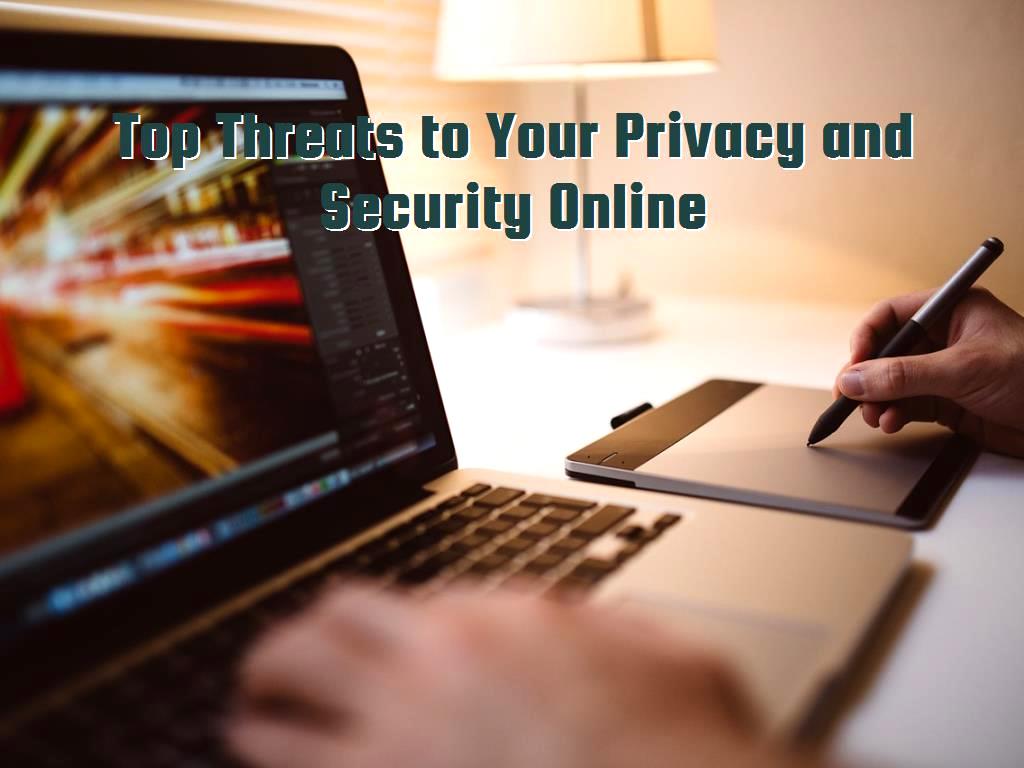Top Threats to Your Privacy and Security Online
4 minute(s) read | Published on: Nov 29, 2021 Updated on: Jan 04, 2022 |
The internet is a wonderful place full of fantastic things to see and experience. You can listen to music, watch videos, talk to people from every corner of the planet, do your job from the comfort of your home, join social media, visit countless websites, the list goes on.

However, many internet users don't prioritize staying safe online and keeping their sensitive, personal information private. For instance, it is common for users to reveal their data in exchange for coupons or discounts. However, it is a clever marketing trick to add your email to a list and send you frequent promotional messages.
The internet made the world an increasingly connected place, but the problem with all those internet-enabled tools and smart gadgets is that they can be used as an entry point to your privacy and home security.
With that in mind, let's see what some of the top threats to your privacy online are and what you can do to keep cybercriminals away from your personal, private, and financial data.
1- Weak passwords and internet security practices
Using strong passwords isn't an option anymore but a necessity that can save you a lot of trouble. Each time you use a password to log into your online accounts, you should consider whether it is safe enough. Does it include all the recommended parameters, such as letters, numbers, symbols, and signs?
Also, never use the same password twice. Such passwords make your accounts vulnerable to cyber-attacks, loss of personal information, and identity theft. You can easily avoid all this trouble by using a password manager to create strong passwords and keep them safe. After all, imagine if the password you use everywhere gets leaked.
2- Phishing attacks
Phishing attacks allow cybercriminals to harvest personal and confidential information that they can exploit later. Hackers often sell this information to third parties on the dark web or use it to blackmail the victim, breach their security systems, etc. Research also proves that hackers make extremely high profits from sexual blackmail.
Since these attacks are quite common in the digital age, watch out for any suspicious links and messages, especially when you're shopping online and disclosing sensitive details like credit card numbers and your bank account credentials.
Avoid opening email attachments and unknown links unless you know the sender well. Never disclose any of your information unless you can verify the recipient's identity.
3- Unsafe web browsing
Limit your web browsing to websites with HTTPS encryption, as it's one of the best ways to avoid any internet security issues. HTTPS sites prevent tracking of your online activities and keep your information away from prying eyes.
Encryption is also an excellent way to secure your information on both desktop and mobile devices by encrypting SD cards, enabling lockdown mode, etc. You can also use a VPN service to keep your online activities and browsing habits to yourself. Such solutions encrypt your internet traffic and prevent entities from learning your online preferences and location.
4- Malware
There are many forms of malware on the web, but the two most common types include ransomware and Trojan horses. Both forms are a living nightmare to deal with and can wreak havoc with your information. In most cases, malware attacks happen without the victims being aware of them.
However, there are things you can do to protect against malware programs, viruses, and other similar threats. Using antivirus software is an excellent way to identify any potential risks. You should also avoid downloading files from untrusted sources.
5- IoT
IoT stands for Internet of Things and encompasses all internet-enabled and smart devices that you can find in every modern smart home today. Almost every internet-connected device can become a potential security risk and an entry point for a privacy attack.
Fortunately, IoT devices also come with security features that you can customize and personalize to suit your personal security needs. Start by ensuring your router has a strong Wi-Fi username and password. Check all your smart home devices and turn off any remote access features that you don't use now.

Conclusion
The more the internet expands and advances, the more these cyber threats advance with it. Since there is no way around it, the best thing you can do is get on top of your personal and internet security to make sure you don't become a victim of a cyber-attack.
Always use top strength passwords, make sure you have a unique password for each online account, and try not to overshare your personal and sensitive information unless you must.
Website SEO analysis services